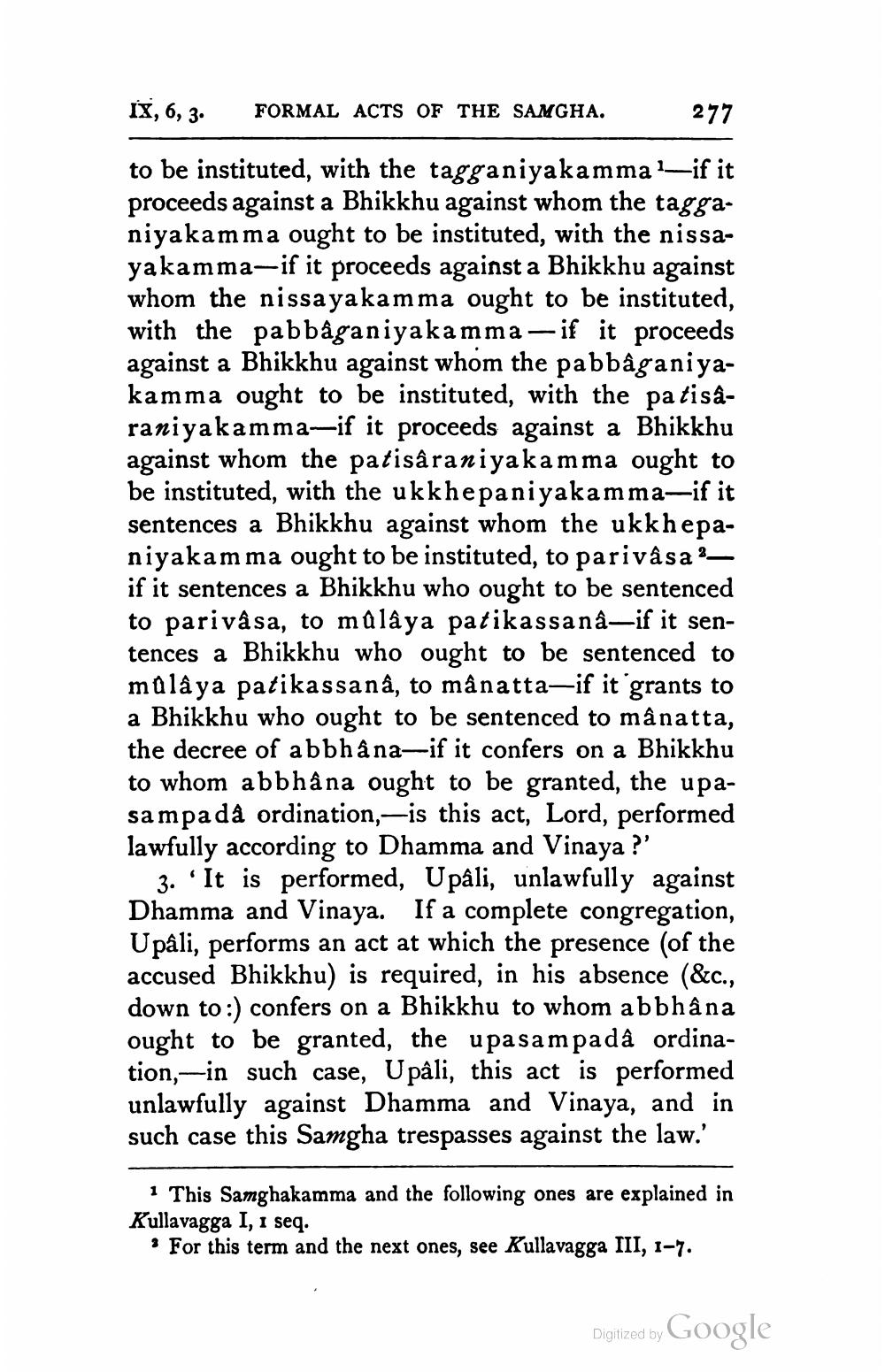________________
IX, 6, 3.
FORMAL ACTS OF THE SAMGHA.
277
to be instituted, with the tagganiyakamma —if it proceeds against a Bhikkhu against whom the tagganiyakamma ought to be instituted, with the nissayakamma-if it proceeds against a Bhikkhu against whom the nissayakamma ought to be instituted, with the pabbåganiyakamma — if it proceeds against a Bhikkhu against whom the pabbâganiyakamma ought to be instituted, with the pa tisaraniyakamma-if it proceeds against a Bhikkhu against whom the patisâraniyakamma ought to be instituted, with the ukkhepaniyakamma-if it sentences a Bhikkhu against whom the ukkhepaniyakam ma ought to be instituted, to parivâsa 2if it sentences a Bhikkhu who ought to be sentenced to parivâsa, to malâya patikassana-if it sentences a Bhikkhu who ought to be sentenced to malaya patikassana, to mânatta-if it grants to a Bhikkhu who ought to be sentenced to mânatta, the decree of abbh â na-if it confers on a Bhikkhu to whom abbhåna ought to be granted, the upasa mpadà ordination,-is this act, Lord, performed lawfully according to Dhamma and Vinaya ?'
3. 'It is performed, Upâli, unlawfully against Dhamma and Vinaya. If a complete congregation, Upâli, performs an act at which the presence (of the accused Bhikkhu) is required, in his absence (&c., down to :) confers on a Bhikkhu to whom abbhâna ought to be granted, the upasampada ordination,-in such case, Upâli, this act is performed unlawfully against Dhamma and Vinaya, and in such case this Samgha trespasses against the law.'
1 This Samghakamma and the following ones are explained in Kullavagga I, 1 seq.
. For this term and the next ones, see Kullavagga III, 1–7.
Digitized by Google
Digitized by




